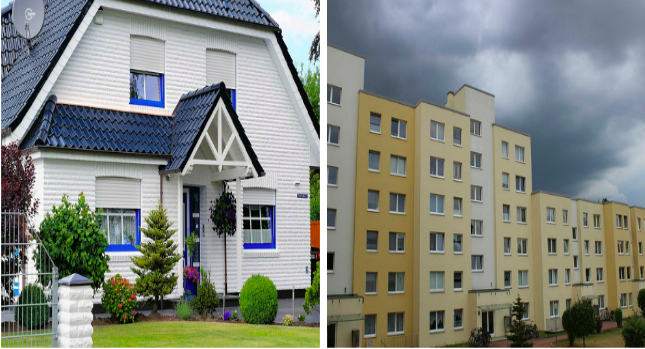
Commercial Property Valuation: What’s Different From Residential?
Valuing commercial property is a different process from valuing residential real estate. While both require technical expertise, the methods, factors considered, and goals of the valuation can vary significantly.
In this article, we highlight the key differences between commercial and residential property valuation, helping investors, buyers, and sellers better understand how each type of property is assessed.
1. Income-Driven Valuation Approach
One of the biggest differences lies in how value is determined:
Residential Properties are usually valued based on comparable sales. Valuers look at recent sales of similar homes in the area to estimate market value.
Commercial Properties (such as office buildings, shopping malls, hotels, or warehouses) are typically valued based on their income-producing potential.
For commercial assets, valuers assess:
Rental income (existing or projected)
Occupancy rates
Operating expenses
Net Operating Income (NOI)
This income data is often capitalized into value using a method called the Income Capitalization Approach.
2. Types of Tenants and Lease Agreements
In commercial valuation, the quality and stability of tenants heavily influence property value.
Valuers consider:
The reputation and financial strength of tenants
Length and terms of lease agreements
Rental escalation clauses
Vacancy risks
A building with long-term leases to strong, reputable tenants (e.g., banks or telecom companies) is typically worth more than one with frequent tenant turnover.
3. Market Comparables Differ
For residential valuation, comparables are other nearby houses or apartments that recently sold.
In commercial valuation:
Comparables could be similar-sized retail shops, office spaces, or warehouses.
They also compare the cap rates (capitalization rates) used in similar property sales.
Income per square meter or square foot is often a key benchmark.
This makes gathering relevant comparable data for commercial properties more complex and specialized.
4. Greater Sensitivity to Economic Conditions
While residential properties are sensitive to interest rates and consumer confidence, commercial properties are even more sensitive to:
Business cycles
Employment rates
Demand for office or retail space
Overall economic growth
A downturn in the economy can significantly lower commercial property income, directly affecting valuation.
5. Risk Analysis is Heavier
Commercial valuation often involves a more detailed risk analysis:
Location and accessibility for businesses
Parking availability
Compliance with zoning and building codes
Competition from nearby developments
Potential for future redevelopment
These risks can affect both the income stream and the property’s long-term desirability.
6. Professional Involvement and Expertise
Due to the complexity of commercial valuations:
Specialized valuers with commercial property expertise are usually required.
Legal, financial, and technical advisors often collaborate during the valuation process.
Investors, lenders, and developers rely heavily on detailed reports before making decisions.
In contrast, residential valuations tend to be quicker and more straightforward.
Conclusion
While residential property valuation is mostly influenced by comparable home sales and emotional appeal to buyers, commercial property valuation is heavily based on income performance and business fundamentals.
If you're venturing into commercial real estate, it’s crucial to work with experienced valuers who understand the complexities of commercial property markets and can provide accurate, investment-grade valuations.

 April 28, 2025
April 28, 2025



